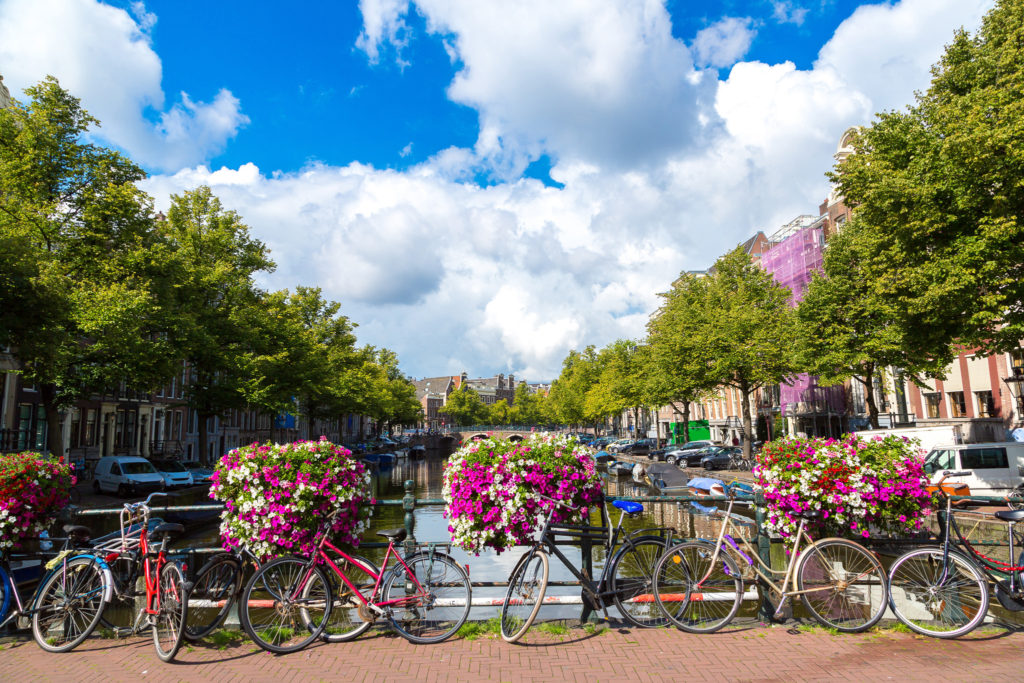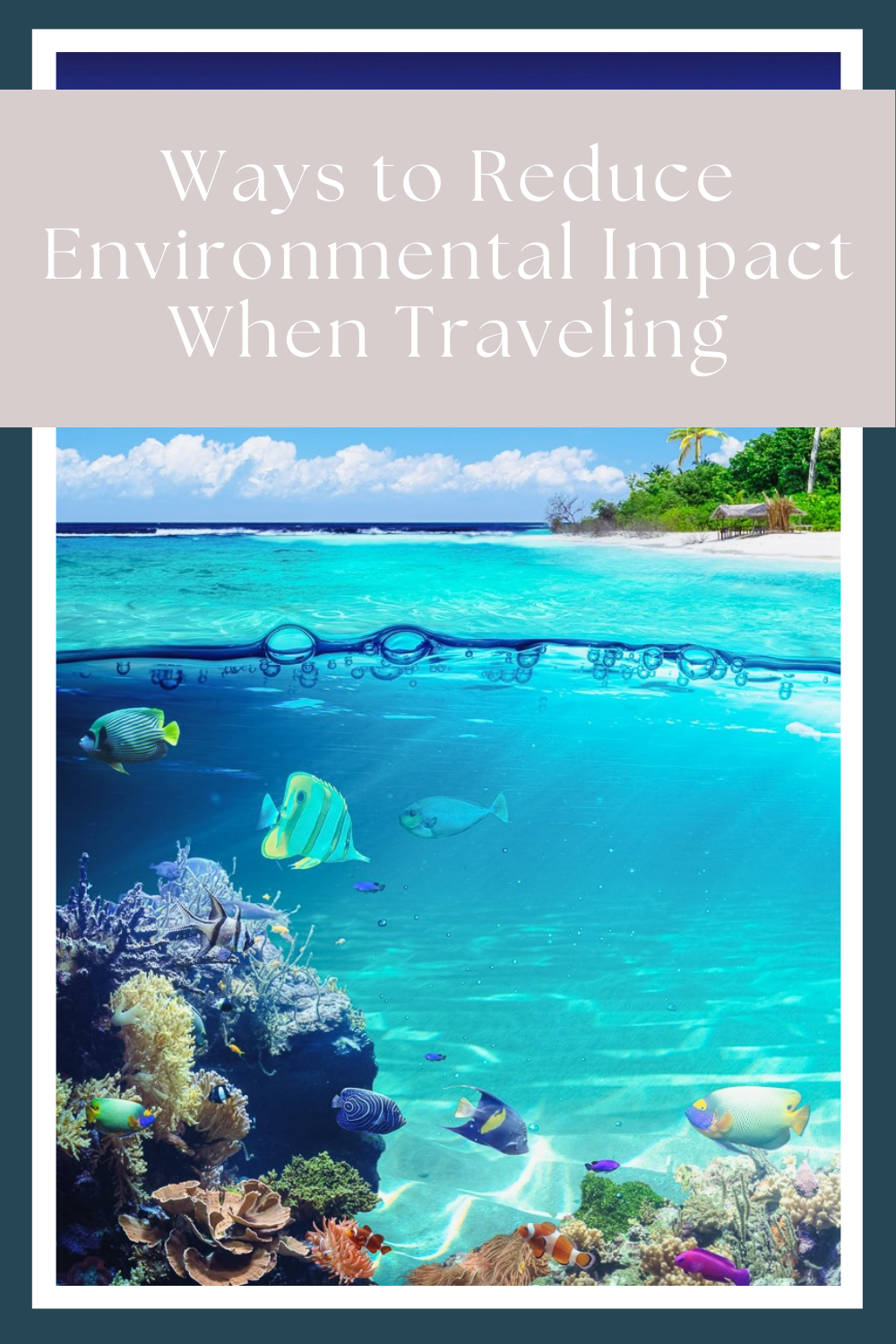How to reduce environmental impact when travelling?
Today is Earth Day and to celebrate, let’s talk about the impact that traveling has on the environment. Conservation and working towards a better planet are causes that we should all support.
With travel more accessible than ever before, mass tourism is creating problems for the world’s most popular travel destinations. So much so that some attractions have had to close down because of the negative impact tourists have had on the environment.
At the end of the day, we can all make small changes to our behaviour to lessen the impact when we travel. From flying less and choosing responsible tour operators to choosing more eco friendly products in our every day life, we can all make a difference.
Here are several ways to reduce your environmental impact while traveling!

Take fewer flights
The aviation industry produces 2% of human-induced carbon dioxide emissions and accounts for 936 million tons of carbon dioxide emissions in 2020 pre-covid. One of the best things we can do for the environment is to start taking fewer flights.
Take direct flights whenever possible and donate money to offset your carbon footprint.
You can donate to important projects that are attempting to lessen carbon dioxide emissions around the world—these projects include bringing renewable energy sources to communities, protecting our forests and oceans, and even restoration efforts.
Another thing you can do is become more aware of an airline’s carbon footprint. Instead of choosing the airline with the cheapest fare, opt for an eco-friendly and sustainable airline.

Travel with eco-friendly products
One of the easiest things you can do to reduce your environmental impact when traveling is to switch to more sustainable products. You want to avoid packing disposables and products that don’t have biodegradable packaging.
Some of our favourite travel eco-friendly items are listed in the guide: Eco-Friendly Gift Ideas for Travellers.

Use public transportation
When traveling, try to use public transportation as much as possible. Both trains and buses are some of the lowest carbon-emitting modes of transport, next to riding a bicycle.
Instead of renting a car, you can use Uber’s carpooling options for short trips around the city, or if you’re traveling in Europe, you can use BlaBla Car.
A lot of cities like Amsterdam, Paris, London, and Barcelona have excellent bike-sharing programs that will help you reduce your carbon footprint while traveling.
But whenever you can, ditch the public transportation and hit the pavements for a walk. It will drastically cut your carbon emissions, and it’s good for your physical health!

Stay in eco-friendly hotels
It’s easier than ever before to find eco-friendly hotels for your next vacation. Whether you’re on a budget or looking to splurge, businesses around the world are doing their best to reduce their footprint on the environment.
Here’s what you want to look out for in an eco-friendly hotel:
- Utilizes green energy sources
- Practices recycling and linen reuse initiatives
- Uses eco-friendly cleaning products
- Gives back to the local community and environment
- Actively committed to becoming a carbon neutral business
To save time finding eco-friendly hotels, you can use websites like BookDifferent and Eco BnB.

Choose eco-friendly activities and tour operators
It’s easy to get caught up in the moment and choose an activity without researching its impact on the environment.
At the same time, you also need to take a good hard look at the tour operators and guides that you’re using. A responsible company will give back to the local community, support conservation projects, and won’t promote unethical experiences.

Eat sustainably
One of the best parts about traveling is the food. It’s a great and delicious way to get to know another culture and experience a destination to its fullest.
However, not all local dishes are sustainable.
In Iceland, eating whale meat is common among tourists and locals. The downside is that whales are endangered and by supporting the industry, it fuels the demand for whale meat and negatively affects whale populations.
One of the resources that I use when I travel is the World Wildlife Fund’s SASSI list. You can search for any seafood, and the website will tell you if it’s a sustainable choice or not.
Some other things you can do while traveling include refusing single-use plastic bottles, using reusable utensils and bringing your own containers for takeaway meals.

Reduce, reuse & recycle
No matter where you travel in the world, you need to be mindful about your consumption of the Earth’s precious resources.
Here are some of the ways you can recycle and reduce the amount of waste you make when traveling:
- Be mindful of your water and electricity usage
- Bring a reusable water bottle and avoid those plastic cups on the plane
- Use your own headphones instead of unwrapping the plastic-covered ones
- Bring a reusable bag you can use for purchases at shops
- Throw your trash away in the proper trash or recycling bins
- If you’re visiting a beach, use your reusable bag to pick up any trash

We can all do something to reduce our environmental impact while traveling.
Do you have any tips for traveling with a small carbon footprint? Let us know in the comments!








